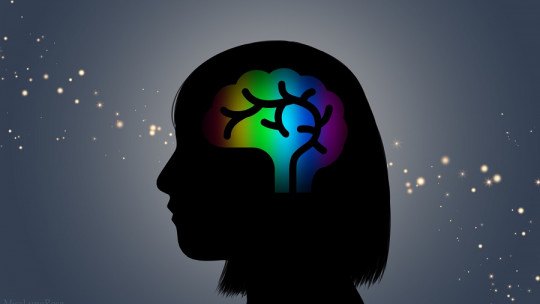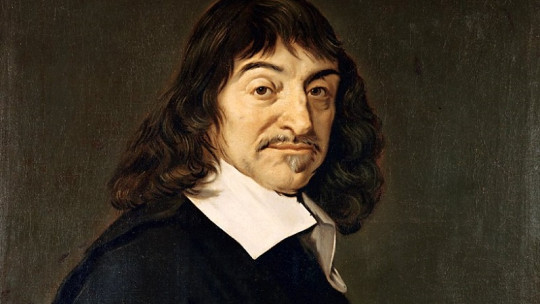
Fundamentally, the object of study of psychology lies in consciousness All human behavior, mental or physical, has its origins in the sensory, perceptual and cognitive capacity of the human mind, as a phenomenological manifestation of what we call consciousness, which is more like an activity or function than an object in itself.
It seems paradoxical that being something so familiar and inherent to the human being, it is at the same time something so mysterious. Although science has argued a lot about the correlates of consciousness and the brain, it cannot answer why consciousness occurs, what its origin is, why something like this exists. We can raise all these questions because there is awareness, but we have not been able to resolve why this is so.
Consciousness and knowledge models
The materialist scientific model seems insufficient to understand consciousness beyond the physical correlates that can be observable and measurable, thereby discarding all introspective knowledge as subjective
We then find ourselves with the basic dilemma of knowledge, which values the objective over the subjective, when they are inherently related aspects. If we consider that objective observations are altered by our measurements as a participatory act, which also always coincides with the subjective; Therefore, there cannot be absolute objectivity, but rather a network of interactions that manifest themselves in a phenomenological dynamic (Wallace, 2008).
In this case, both forms of knowledge are correlated, which makes it possible expand the panorama and depth of knowledge of consciousness, valuing objective information with analysis and subjective introspection, taking this introspective knowledge as a form of pragmatic empiricism, which allows, from the first source, knowledge of the qualities and nature of consciousness, which is emerging as an empirical model that can give us a perspective and a serious line of investigation.
Consciousness and cognitive potentials
It may be that the probability of consciousness in the universe is not so rare, but the capacity that we human beings have to be self-aware, to be aware of ourselves, is, which brings us another even more rare and extraordinary quality: the possibility to realize that we are conscious. It is through this capacity that we can achieve a greater depth in the introspective knowledge of our consciousness, transcending the layers, structures and contents of it to discover the basal nature that underlies conditioning
We can understand this as a cognitive process that involves particular states of attention that regulate our experience and perception to guide our cognitive capacity to the plain observation of the qualities and functions of consciousness, not its structures and contents.
In psychological terms, the cognitive process occurs because there is consciousness, and it is through sensory and perceptual experience that knowledge occurs. This experiential processing It will largely depend on our state of consciousness, attentional disposition and cognitive level

In short, the different levels of reality can be experienced or experienced differently depending on the direction and breadth of attention and the associated states of consciousness (García-Monge Redondo, 2007). With this premise we can assume that in our experience with the environment there is always consciousness, although the states of consciousness and the direction of attention are not always the same, these two aspects interact and influence each other closely, so orienting our attention in a certain way way we influence states of consciousness; In the same way, by influencing our states of consciousness we also influence our cognitive ability.
By developing our cognitive abilities we bring our knowledge to metacognitive applications that is, realizing that we know and having the possibility of doing something with that ability and the way in which we know, thus potentiating our cognitive abilities and our consciousness.
In this sense, in knowing there is the development of consciousness, but not in a sense of accumulating knowledge, but of understanding consciousness itself. From this point of view, consciousness develops itself through knowing itself. This could be applied to other forms of evolution, not only biological, but also psychological, such as knowledge regarding the capacity and potentials of consciousness and its implication in the development of the person. This development occurs through the experiences that occur throughout our lives, starting from the notion of existing.
Existence and identification: the conditioning of consciousness
Existence, ex-sistererefers etymologically to “being outside of”, which refers to a separation, which can well be understood as a phenomenological aspect of the manifestation of being, a manifestation of the immanent and transcendent Principle of all that exists (Benoit, 1955). Existence involves a dichotomy in this sense, being, as a state of being, but outside of, what in human existence is perceived as well-being and discomfort at the same time, on the one hand we possess something, but on the other we lack something. This duality manifests itself in the feelings of the human being as existential anxiety or angstwhich includes a transcendent emotion of anguish for life that hope implies.
This situation causes a state of imbalance, and consequently the impulse to search for complementarity, fill the void, neutralize or seek balance, driven by a feeling of lack or insufficiency. This anguish is compensated through identifications, with which the individual seeks to progressively reaffirm the coherence of his existence in an identity, which is consolidated in advanced stages of development, in such a way that the change is interpreted as a threat of annihilation. , limiting the recognition of transcendental qualities of being to which Benoit refers in the following terms:
“The human intellect develops progressively, in such a way that it is capable of seeking, in an illusory and always provisional manner, the pacification of egoic affirmations, before being able to perceive the ‘sistere’ in its fullness; that is, before being able to perceive the emanation of the Principle, to which he is linked by direct affiliation, and which confers upon him the very nature of the Principle and its infinite prerogatives.” (Benoit, 1955).
The Principle to which Benoit refers corresponds to the natural state of things, in this case, to the basal state of consciousness, the natural basis of conscious potential, from where all the contents, constructs and states of consciousness emerge and are based. When the human being is capable of identifying the Principle or his basal consciousness, his identity is already firmly rooted and conditioned to the egoic affirmations of his personal history, which makes it difficult to recognize his natural state or the origin of the sistere, the being. . The valorization of existence is then consolidated in the relative conditions of the ego, its personal and individual existence; ignoring their common relationship with the origin, the Principle, which gives it a universal and anonymous existence.
“The acceptance of the relative reality of existence can make possible identification with the Principle or the natural state that grounds the being, then recognizing oneself as a microcosm that is the result of a universal macrocosm. This recognition is what Zen refers to seeing in one’s own nature” (Beniot, 1955).
This is possible in a process of expanding development of consciousness that begins with self-knowledge, evolving from disidentification of primary states to identification that involves increasingly broader strata; as well as the consequent discernment of conventions and the reality that transcends them That is, the recognition of the ultimate and undifferentiated reality, underlying the reality of the conventions that condition the individual. In this case, the individual can recognize the existence of him as the first cause of the totality of his actions and the phenomenology of him, and can at the same time recognize the base of origin from which he comes.
The contemplative model
Contemplation is a conscious activity that enables knowledge of deeper aspects of experiential reality. The word “contemplation” has been used in various ways over the years. There is a reference to the Latin term contemplationthat comes from contemplate, the action of observing carefully. The Greek term theory It is homologous to Latin contemplationreferring to the knowledge and clarification of the truth, which It refers us to the action of observing and knowing
We can define the action of contemplating with the following reference:
“It means the action and the result of looking at something with attention and admiration, for example, an interesting spectacle. In this way, the original meaning of the term contemplate contains a triple content: looking, but doing it with attention, with interest, what It involves an affective dimension of the person. Said interest comes from the intrinsic relationship with the reality contemplated. This looking involves a presence or immediacy of said reality” (Belda, 2007).
We can understand the looking of contemplation as a cognitive process that provides direct and intuitive knowledge of reality, this being a natural quality of consciousness in which it becomes totally receptive and clear in relation to immediate reality.
The first element of contemplation, according to Pieper, is the “silent perception of reality” that starts from intuition, this being, without a doubt, the perfect form of knowledge. Through intuition one knows what is, in fact, present (Pieper, 1966). This is a form of perception that occurs through being aware of the immediate present, without conceptual interpretation, which refers to silence, and that enables receptive and experiential knowledge
This form of knowledge is developed primarily, but not exclusively, by contemplative traditions. We usually think of organized religions or philosophies and evoke a cloistered life; However, the contemplative discipline does not necessarily include such a connection. Contemplation being a form of perception and knowledge, it is also practiced in secular life, without being linked to a particular philosophical or psychological current.
The foundation of contemplative traditions is the methodological orientation in a process of development of the individual through stages aimed at the realization of human values and ideals. However, the development of human capabilities transcends ideologies and philosophies, settling on human endeavors as part of their experiential life, where our attitudes are determined by the way we interpret and perceive, but above all by our awareness of being, which which is understood through contemplation. The contemplative process starts from a sense of self that carries a sense of responsibility for one’s own existence and its correlations guiding the individual naturally to the realization and updating of human values and their potentials.
It is through contemplation that consciousness transcends the demarcations of our habitual mind – interpretive and conditioned – to access a way of knowing, or knowledge, in direct connection with our immediate reality. The knowledge that is generated in contemplative states is not static or conceptual knowledge, nor can it be said to be an accumulation of data, it is rather a dynamic and strictly experiential knowledge, which takes knowledge to deeply significant levels, since it is a form of conscious connection with the contemplated reality.
The contemplative attitude and attention
It might seem complex to approach contemplation from what is described in a text, and I think it would not be the most appropriate, since what is described here is still conceptualization. It is only an indication, not the contemplation itself. But let’s evoke experience and common sense; We have all, at some point, lived a contemplative experience at some level, where the mind experiences openness, receptivity and clarity. This can occur spontaneously or induced.
We can resort to experiences where we have felt rapture, admiration or amazement at what we observe. For a few moments there is no internal dialogue, we are only in the experience in a significant way, it can be when we admire a landscape, the stars, the birth of a baby, attending to a work of art, finding a solution to a problem, understanding some reality, in some creative process ; or it may also be, in the most ordinary and routine situations of our life, this is because contemplation is not limited only to circumstances or environmental factors, but comes from an attitude of the mind, where it becomes open, receptive. and clear, like an open window that allows the wind to enter a room that has been closed for a long time.
To access contemplation we require a primary disposition to observe. Simply see what happens, for that we must detach ourselves from the observer’s own preconceptions, remove the veils and observe plainly; This involves more difficulties than it seems, since we soon discover that our mind is constantly interpreting. This is one of the primary obstacles to contemplation.
The interpretive mind is not a skillful means to contemplate, since we will be interpreting reality and projecting into it preconceived and conditioned knowledge, with beliefs and preferences, ending up making a reflective attempt that rather ends up being an eternal internal dialogue.
In this process we can observe what happens in our mind without encouraging or rejecting it, but knowing what happens in it; We then begin to generate a contemplative attitude towards ourselves and the way we behave. This implies essential characteristics such as stillness and openness to experience, where there is an absence of interpretation and conceptualization, where the act of thinking does not predominate, but presence awareness. It is necessary to direct our attention in a stable and precise manner, which is an important and essential part of contemplative training, since it is attention where contemplation is based.
The implications of contemplation in psychology
Contemplation, being a quality of consciousness through which the perception and knowledge of our personal reality is fostered in a particularly profound way, is a form that implies a connection with the being and its existence, largely resolving the conflict. of anxiety that the existential condition implies.
The understanding and knowledge generated from contemplation is manifested in life and the meaning we have of it, which is called Weltanschauung (De Witt, 1991) the development of a vision or attitude towards life as a whole. and its relationship with our own existence, or what Yalom considers as existential responsibility, where the perception and appreciation of the nature of our existence, its impermanence and its relationships allow a deep assessment that implies a responsibility towards ourselves. In this sense the psychological implications are vast, but this brings us to the question that De Witt raises: Can contemplative psychology be called “scientific” in an academic sense?
“In accordance with the experience of contemplative traditions, we can assume that the psychology described through contemplation contains accurate and confirmable knowledge through introspective experience. Human intelligence and the forms of knowledge and understanding do not refer only to scientific methodology, it also includes the empirical order at a personal level” (De Witt, 1991). This involves various levels of personal experience, such as sensory, intellectual and affective. Contemplative psychology is then interested in knowledge and development in the experiential stratum of the person, in how we can understand human life intelligently from an empirical and sensitive perspective.
This state of consciousness goes through several sensory-perceptual and cognitive psychological processes that generate insights about ourselves and the nature of our consciousness, its interrelationship with the environment and our behavioral impulses.
Contemplative psychology is derived from the study of these processes and the states of consciousness related to the contemplative experience and the development possibilities it implies.








